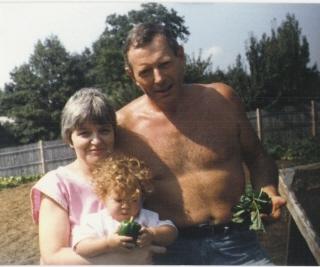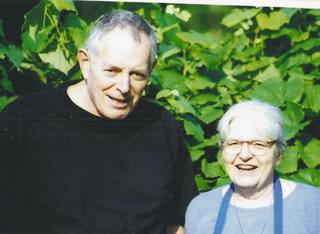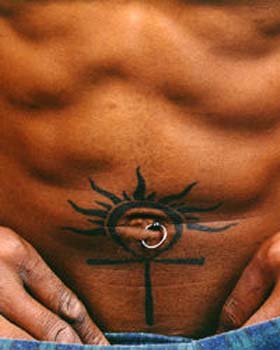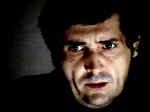It all boils down to death. The elephant in our kitchen.The universal spoiler.The equalizer.The minute we're born we start to die.A little at a time.The minute we forget about death our existence becomes as banal as the latest fad we're distracted by.Death makes happiness impossible, possessions worthless and achievements hollow.It's where everyone before us is, where we're going and where everyone after us will follow.We revile it, fear it, hide it and pretend it doesn't effect us. We are drawn to it, trivialize it, sensationalize it and use it to our advantage whenever possible.There is nothing more deleterious than forgetting about death.There is nothing more senseless than worrying about it.So I strongly recommend you read last Sunday's NYTimes Magazine. The cover article, 'The Struggles to Create the Good Death', falls just short of saying what has to be said. By not saying it, by saying everything else but the obvious and finishing with a hapless shrug of the shoulders Robin Marantz Henig makes a much stronger statement about death and the human condition than she probably intended.She tells the story of Goldie Gold, cancer victim, atheist, frightened and unwilling participant in the dance of death who laments, "I'm not afraid of dying, but I'm terribly unhappy about not living."Marantz narrates other dramas, terminally ill patients and their families torn between the horror of death and the torture of living a life so extenuated that technology can barely sustain its pulse.She even talks about the death of her own father who, at 76, suffered congestive heart failure while sitting on the toilet. His demise was mercifully swift, she admits, yet bemoans not having the chance "to make my father's death meaningful". (That's a line worth coming back to...) The article is framed as an inquiry into the two paths most traveled by dying patients: hospice care and palliative medicine. At the risk of oversimplifying, hospice care began as an alternative to exaggerated, unwanted medical attention allowing patients to die peacefully (machine free) in their own homes. Hospice expenses (nursing, painkillers, beds...) fall under Medicare when the sick person has been diagnosed to live six months or less.Palliative medicine has become a sort of pre-hospice treatment that starts with the initial diagnosis of a terminal illness. It emphasizes pain relief, symptom control and emotional support without excluding hospitalization and medical intervention.
The elephant in our kitchen.The universal spoiler.The equalizer.The minute we're born we start to die.A little at a time.The minute we forget about death our existence becomes as banal as the latest fad we're distracted by.Death makes happiness impossible, possessions worthless and achievements hollow.It's where everyone before us is, where we're going and where everyone after us will follow.We revile it, fear it, hide it and pretend it doesn't effect us. We are drawn to it, trivialize it, sensationalize it and use it to our advantage whenever possible.There is nothing more deleterious than forgetting about death.There is nothing more senseless than worrying about it.So I strongly recommend you read last Sunday's NYTimes Magazine. The cover article, 'The Struggles to Create the Good Death', falls just short of saying what has to be said. By not saying it, by saying everything else but the obvious and finishing with a hapless shrug of the shoulders Robin Marantz Henig makes a much stronger statement about death and the human condition than she probably intended.She tells the story of Goldie Gold, cancer victim, atheist, frightened and unwilling participant in the dance of death who laments, "I'm not afraid of dying, but I'm terribly unhappy about not living."Marantz narrates other dramas, terminally ill patients and their families torn between the horror of death and the torture of living a life so extenuated that technology can barely sustain its pulse.She even talks about the death of her own father who, at 76, suffered congestive heart failure while sitting on the toilet. His demise was mercifully swift, she admits, yet bemoans not having the chance "to make my father's death meaningful". (That's a line worth coming back to...) The article is framed as an inquiry into the two paths most traveled by dying patients: hospice care and palliative medicine. At the risk of oversimplifying, hospice care began as an alternative to exaggerated, unwanted medical attention allowing patients to die peacefully (machine free) in their own homes. Hospice expenses (nursing, painkillers, beds...) fall under Medicare when the sick person has been diagnosed to live six months or less.Palliative medicine has become a sort of pre-hospice treatment that starts with the initial diagnosis of a terminal illness. It emphasizes pain relief, symptom control and emotional support without excluding hospitalization and medical intervention.  The problem is, according to the author, that hospice care now includes 'open access', the availability of chemotherapy and other highend treatments thus essentially embracing what it originally renounced: highly technical, medicalized intervention in dying. Palliative medicine, on the other hand, is yet to be globally accepted as a specialization in its own right and often blurs the final decisions even more: when has enough been done and how much is too much?The article is engrossing, as is every serious consideration of death. But what is almost said, what is subtly skirted in the piece is infinitely more interesting.What are these observations not saying?"...we act as if we can avoid death indefinitely only if we're quick enough or smart enough or prepared enough.""How do we let go of a life? When do all the small fixes stop making sense? How does a person know when to say, 'OK, so this is what I'll finally die of'? We rarely ask such questions because we don't believe, in our bones, that a terminal disease will end in actual death."
The problem is, according to the author, that hospice care now includes 'open access', the availability of chemotherapy and other highend treatments thus essentially embracing what it originally renounced: highly technical, medicalized intervention in dying. Palliative medicine, on the other hand, is yet to be globally accepted as a specialization in its own right and often blurs the final decisions even more: when has enough been done and how much is too much?The article is engrossing, as is every serious consideration of death. But what is almost said, what is subtly skirted in the piece is infinitely more interesting.What are these observations not saying?"...we act as if we can avoid death indefinitely only if we're quick enough or smart enough or prepared enough.""How do we let go of a life? When do all the small fixes stop making sense? How does a person know when to say, 'OK, so this is what I'll finally die of'? We rarely ask such questions because we don't believe, in our bones, that a terminal disease will end in actual death.""Dying at home is not easy. (Although) 70% of Americans say they want to die at home, few realize how grueling the work of dying can be."
"Death often comes as something of a surprise - which is odd, when you think about it, because people who die tend to be old and sick already."
"...why do we often feel blindsided by death, even the death of an elderly person suffering from a long-term condition?"
"What we're addicted to, it seems, is the belief that we can micromanage death. We tend to think of a 'good death' as one we can control... But often our best laid plans can go awry. Dying is awfully hard to choreograph."
"Studying death is somewhat like studying a black hole... there's something intrinsic to the very process that defies our ability to analyze it."
"The scariest part about dying... is how it ends: with the immutable fact of no longer existing."
 In the last columns of her article, the author reflects on the unwillingness of health care professionals and their terminal patients to use words like death, dying, end of life, preferring in their place all manner of euphemisms.
In the last columns of her article, the author reflects on the unwillingness of health care professionals and their terminal patients to use words like death, dying, end of life, preferring in their place all manner of euphemisms.
But the words the author herself avoids using reveal an even greater ambiguity. How can you write about death without using words like mystery, completion, definitive act of free will...
The truth about death is not to be found in medicine or statistics or legislation. Death is a mystery because life is a mystery. We have exiled all concept of mystery from our bland, banal lives. That is why death frustrates and terrifies us.
Dying is the last and greatest opportunity to embrace the mystery, the radical truth that makes all our schemes and ambitions evaporate like drops on hot pavement.
Death cannot be understood in scientific or sociological terms. It would be like applying all the practical and theoretical knowledge of auto-mechanics to interpreting a work of Matisse. By missing the point you would, in fact, be making the point.
Get the point?
Oh yeah, and that line about "making her father's death meaningful"? Well, it was the first 76 years of the mystery that determined the meaning of its last instant. The cause and the place of his death may or may not highlight that meaning, but they do not constitute it.
Your death will mean whatever your life did. Nothing more. Nothing less. 'Nuff sed.





















